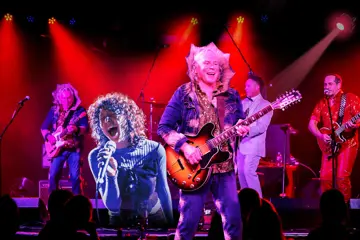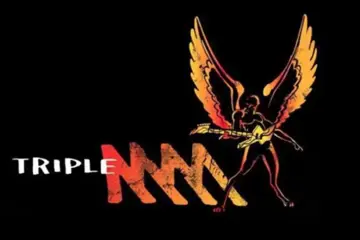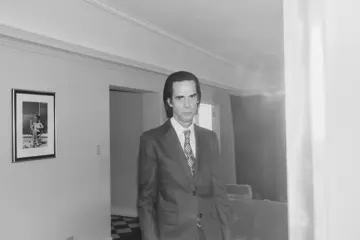lan Lomax is affectionately known as the grandaddy of folk music. The late 1930s and early 1940s saw the musicologist begin his quest to collect and preserve the blossoming folk sounds of America. Lomax is credited with laying the folk music foundations in the United States. He travelled around the country all the way from the Deep South to the mountains of West Virginia, visiting prisons and railroads to collect the music of the people – their collective soul – with one aim: to share it with the rest of the world.
“Man, this is a journey through the American music landscape,” boasts Megafaun keyboardist Phil Cook excitedly. “It's like a freight train going right across the country and we want take other people on that journey, too. I mean, everybody knows it's the music that makes America great. I mean, we are known for our music.”
Given Lomax's extensive collection – which he spent most of his adult life compiling – Cook says the hardest part about preparing for their Lomax-inspired Vivid production Sounds Of The South was being so spoilt for choice when it came to song selection. “Alan Lomax recorded in the Delta, in Appalachia, in churches, in homes, in prisons – basically everywhere,” says Cook excitedly, “So, we wanted to select not only our personal favourites, but also showcase the breadth of the material in a balanced way. That took months.”
They weren't alone, however, and were joined by former DeYarmond Edison band member, singer and guitarist Justin Vernon, best known as frontman for indie folk-rock trailblazers, Bon Iver. After around four years together, DeYarmond Edison split – leaving Vernon to go off and form Bon Iver, while the Cooks and Westerlund created Megafaun.
Don't miss a beat with our FREE daily newsletter
But the guys stayed friends and, insists Cook, Vernon is a huge part of their Sounds… spectacular. “Oh Justin will be there! That's the whole part of it. I mean, a lot of the material was written when he was with us in the earlier stages of the band [DeYarmond Edison]. So, they are songs that really only Justin can perform. There are three songs that are written specifically for him and he's gonna sing the shit out of those – y'know, like he always does.”
Joining them on stage are Fight The Big Bull, the soulful southern rock troupe and brainchild of modern folklore legend, Matthew E White. “Oh Matt is just amazing,” coos Cook. “I mean, he had to cancel a bunch of his tours and shit that he had going on to work with us, y'know? I love Matt. I mean, he's my brother from another mother. We worked with him on all this stuff – he's really just this creative beast.”
During the making of the show, a great bromance blossomed between Cook and White – who are now each other's greatest admirer. “Lomax was something that was integral to our relationship already,” says White, “So, this was just a really perfect project. We rehearsed it, wrote the music and that was it.”
White says he feels the projects worked so well because both groups were approaching the project from the same wavelength, nothing proved a struggle. White adds that he had always wanted to form some sort of collaboration between Fight The Big Bull and Megafaun. “So after meeting Phil we brainstormed a few ideas together and then the Duke commission came up – and it was such a perfect project”.
The Duke commission that White's referring to was the real catalyst for bringing the musos and their respective bands together. In 2010, North Carolina's Duke University in the US commissioned Sounds Of The South, giving foundation to White and Cook's lofty folky imaginings. “It was really interesting for us as a band to work with Matt,” muses Cook. “Really different 'cause, you know, the three of us, we like to create big things and just go for it and then try and pick the good parts out of that, but Matt is much more of a wider vision kinda guy, y'know? He'll just sit down and work with us on the entire thing from ground up and we're not used to that.”
But he insists the partnership allowed both groups a new found freedom and the ability, much like Lomax, to explore and conquer unchartered musical fields. “Joe [Westerlund], Brad [Cook], Matt White and I would meet to arrange and map out song structures,” explains Cook. “While we were doing that, we'd find some small thread – a rhythmic motive, a melodic gesture, some background noise – and begin with that. Then we build up a song around that thread. We had total freedom. Some songs we made into Charles Mingus, some songs into Stax/Volt territory. Some songs feel solidly and devotedly traditional and some are renegade and wildly free. It's quite a range, I gotta say,” Cook adds.
Given the recent rise and rise of artists such as Bon Iver and White, it seems folk music is enjoying somewhat of a resurgence, but the idea of there ever having been a decline in folk's popularity mildly irks Cook, who believes that folk music “just is”. “Folk music is born out of struggle and hard times. The weight of its momentum and the amplitude of its vibration give it everlasting life,” says Cook before embarking on an epic seminary on the origins of folk.
“You know,” Cook continues, “folk was born of deep human experience and it will always meet relevance with folks because it speaks to the very core of their being. I don't ever think it goes away. It's always there – right below or above the surface. You know, it doesn't enjoy a 'comeback' as people may think, because it's always there. Every once in a while we're reminded of its presence and we embrace it for a while but it never goes in and out. It's adaptability allows it to consistently be moulded and shaped into whatever it needs to be which is why it's so accessible for artists to use and learn from.















